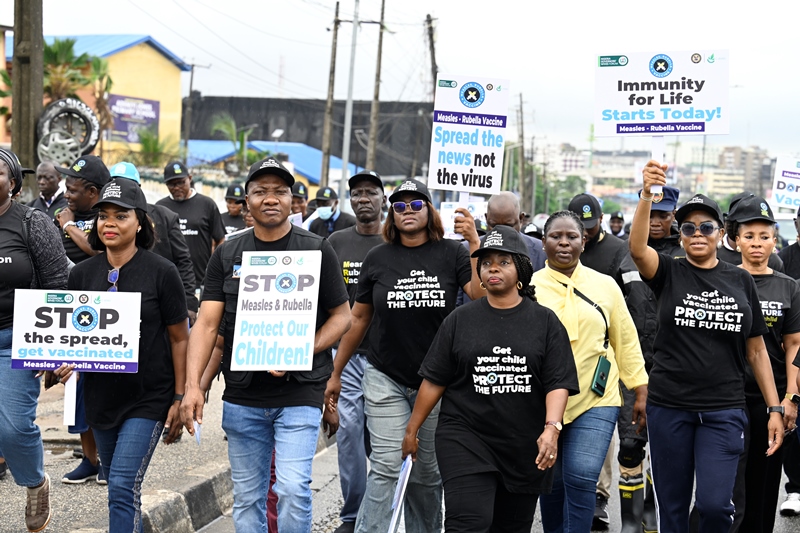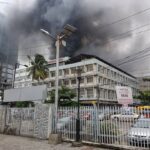Dr. Ibijoke Sanwo-Olu, First Lady of Lagos State, has rallied parents, educators, traditional rulers, religious leaders, and civil society organizations to partner with the state government in a landmark Measles-Rubella (MR) vaccination campaign set to commence in January 2026.
Speaking at a stakeholders’ engagement event at Lagos House, Ikeja, she described the initiative as a “collective social responsibility” to protect children from the preventable yet deadly viral diseases of measles and rubella.
The campaign, backed by Governor Babajide Sanwo-Olu’s approval of counterpart funding on August 18, 2025, underscores the administration’s commitment to eliminating vaccine-preventable diseases and ensuring child health across Lagos.
The MR vaccine, offering dual protection against measles and rubella, will be provided free of charge at government health facilities, targeting children aged nine months to 14 years.
Dr. Sanwo-Olu emphasized the campaign’s broader societal impact, calling it a movement to secure the future of Lagos’ children.
“The vaccines are safe, effective, and free. Parents must ensure no child is left unprotected,” she urged, encouraging schools to facilitate on-site vaccinations and families to embrace the initiative.
To boost community trust and combat vaccine hesitancy, traditional rulers, religious leaders, and market associations have been appointed as Vaccination Ambassadors to promote awareness and participation.
“Together, let us say YES to vaccination, YES to a healthier Lagos, and YES to the future of our children,” the First Lady declared, rallying stakeholders to unite in this critical public health effort.
Dr. Ibrahim Akinwunmi Mustafa, Permanent Secretary of the Lagos State Primary Health Care Board, provided sobering context at the event, highlighting the global and national surge in measles cases.
He noted that worldwide infections rose from 8.6 million in 2022 to over 10 million in 2023, with outbreak-affected countries increasing from 36 to 57. Nigeria, one of the hardest-hit nations, recorded 9,821 confirmed measles cases and 77 deaths in 2024, with over 70% of cases among unvaccinated children.
“Lagos, with its dense population and high mobility, faces a unique risk of outbreaks,” Mustafa warned. “Broad vaccine coverage is essential to protect our communities.”
He highlighted the state’s prior success, having reached 3.58 million children, 85% coverage in the 2024 integrated vaccination campaign, which included measles, yellow fever, and HPV vaccines.
The new MR vaccine will be integrated into Lagos’ routine immunization programme, with an introductory campaign targeting children aged nine months to 14 years, followed by a two-dose schedule for sustained protection.
Vaccinations will be administered at schools, primary healthcare centers, religious institutions, outreach venues, and subsequently all public and private facilities offering routine immunization.
Mustafa assured that the vaccine is safe, with only minor side effects like mild fever or rash in rare cases, though children with severe allergies or compromised immunity may require medical evaluation.
The initiative aims to close immunity gaps, prevent life-threatening complications like congenital rubella syndrome, and break the cycle of outbreaks.
“Lagos has taken bold steps by providing free vaccines, but success hinges on collective action,” Mustafa said, adding that “Parents, caregivers, teachers, and community leaders must ensure every eligible child is protected.”







